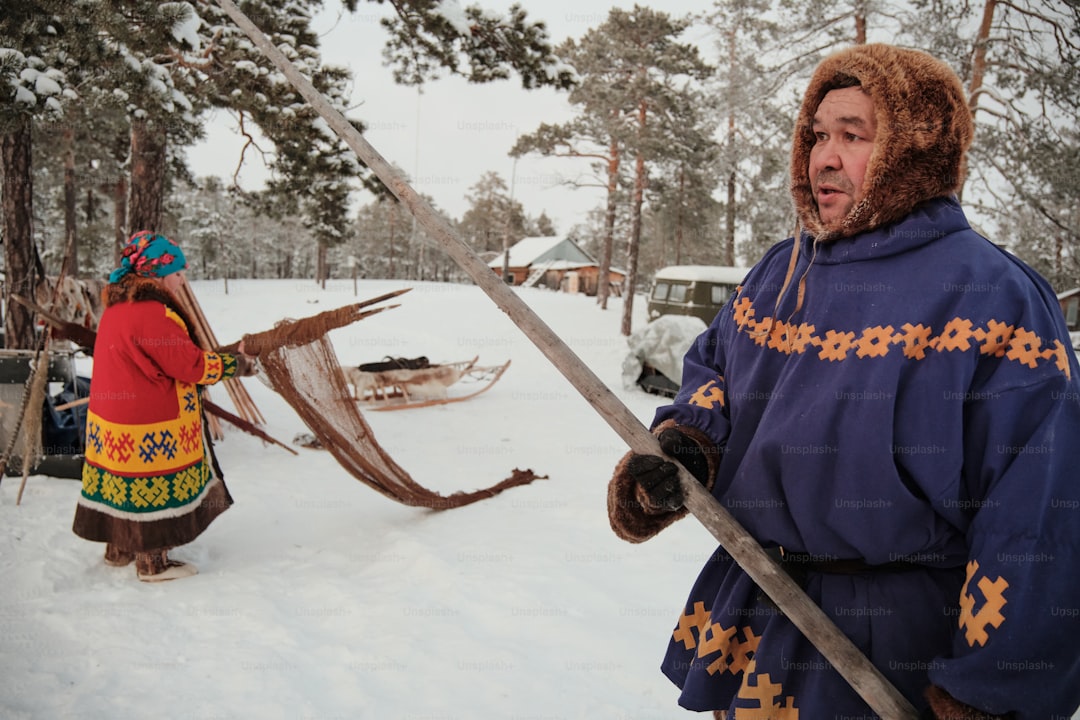Coastal Retreats and City Hubs for European Nomads

Coastal Retreats for European Nomads
Europe’s coastline reads like a tapestry of sun‑kissed beaches, historic fishing villages and modern surf towns. For digital nomads who crave the rhythm of waves and the freedom of an open sky, these coastal spots provide reliable internet, affordable living and a lifestyle that blends work and play effortlessly.
The Algarve, Portugal
The southern tip of Portugal is famous for its dramatic cliffs, golden sands and turquoise waters. Towns such as Lagos, Albufeira and Sagres have become magnets for remote workers.
Why it works
- Connectivity – Fiber optic networks now cover most of the region. Co‑working spaces in Lagos and Portimão offer fast Wi‑Fi, private desks and meeting rooms.
- Cost of living – A modest studio in a seaside town can be rented for under €600 a month, while groceries and dining out remain cheaper than in most Western European capitals.
- Lifestyle – Early morning surf sessions, cliff‑side hikes and a vibrant nightlife give a balanced routine. The climate stays mild year‑round, meaning you can work from a café with a sea view even in winter.
Tips for settling in
- Register with the local municipality within 90 days if you plan to stay longer than three months.
- Join the “Digital Nomads Portugal” Facebook group – it’s a great place to find flat‑shares, language exchanges and community events.
- Take advantage of the free public transport pass for seniors; many towns offer discounted rates for long‑term residents.
Valencia, Spain
While Valencia is a city, its location on the Mediterranean coast gives it a beach‑city hybrid feel. The city’s extensive bike lanes, sunny plazas and bustling port area make it a top choice for those who want a mix of urban amenities and seaside relaxation.
Why it works
- Infrastructure – The city boasts one of the fastest broadband speeds in Spain, with many cafés and libraries offering reliable Wi‑Fi.
- Community – An emerging scene of start‑ups, co‑working hubs and tech meet‑ups creates a supportive environment for freelancers and remote employees.
- Culture – From the futuristic architecture of the City of Arts and Sciences to the historic Barrio del Carmen, Valencia offers a rich cultural calendar that can be explored after work hours.
Tips for settling in
- Apply for a “Tarjeta de Identidad de Extranjero” if you intend to stay longer than six months; it simplifies banking and healthcare access.
- The “Albufera” natural park is just a short bus ride away – a perfect weekend escape for nature lovers.
- Use the “Valenbisi” bike‑share system to commute between the beach, the old town and your co‑working space.
Split, Croatia
Split combines the charm of a Roman‑era old town with a vibrant modern waterfront. The city’s historic “Diocletian’s Palace” is now home to cafés, art galleries and start‑up offices, while the surrounding Dalmatian islands offer tranquil getaways.
Why it works
- Speedy internet – Several co‑working spaces such as “Co‑Work Split” provide gigabit connections and private phone booths for video calls.
- Affordability – Compared with Western Europe, rent for a one‑bedroom apartment near the sea can be found for €500–€700 a month.
- Adventure – Ferries run daily to islands like Hvar and Brač, giving you the chance to island‑hop on weekends without leaving the base city.
Tips for settling in
- Learn a few basic Croatian phrases; locals appreciate the effort and it opens doors to authentic dining experiences.
- Register your stay at the local police station within 48 hours of arrival if you are staying longer than 30 days.
- Take advantage of the free Wi‑Fi zones in the city’s public parks – they’re perfect for an outdoor work session.
Nice, France
Nestled on the French Riviera, Nice offers a glamorous coastline with a relaxed work environment. Its promenade, known as the “Promenade des Anglais,” provides a stunning backdrop for remote work, while the city’s cultural institutions keep the creative spark alive.
Why it works
- Connectivity – High‑speed fiber is available throughout the city, and many cafés along the seafront have strong Wi‑Fi signals.
- Quality of life – The Mediterranean climate, fresh seafood markets and vibrant art scene create a daily inspiration source.
- Transport – An extensive tram network connects the city centre with the airport and surrounding towns like Antibes and Cannes.
Tips for settling in
- If you’re an EU citizen, you can stay for up to 90 days without a visa; for longer stays, apply for a “Carte de séjour” at the prefecture.
- The “Coworking Nice” hub offers flexible desk plans and networking events that attract freelancers from across Europe.
- Explore the “Cimiez” neighbourhood for quieter residential vibes and a stunning view of the sea.
Budva, Montenegro
Budva may be less known than its western European counterparts, but its Adriatic charm is undeniable. The old town’s stone walls, lively beach bars and growing digital nomad community make it a hidden gem for those seeking an affordable coastal base.
Why it works
- Low cost – A modern apartment near the beach can be rented for under €400 a month, and meals at local konobas are budget‑friendly.
- Internet – Several co‑working spaces have upgraded to fiber, ensuring stable connections for video calls and large file uploads.
- Community – An informal “Nomad Meet‑up” takes place every Friday at a beachfront café, fostering connections and knowledge sharing.
Tips for settling in
- Montenegro offers a “digital nomad visa” allowing stays of up to one year; the application process is straightforward and requires proof of remote work income.
- Use the local bus system to explore neighboring towns such as Kotor and Herceg Novi – each offers a unique historic atmosphere.
- Summer festivals draw an international crowd; consider attending to expand your network.
The Greek Islands – Crete and Rhodes
While island life can sometimes feel isolated, Crete and Rhodes balance connectivity with a laid‑back atmosphere. Both islands have modern infrastructure in their main towns, and the scenic beauty provides endless inspiration.
Why it works
- Internet – In Heraklion (Crete) and Rhodes Town, fiber broadband is widely available, and many cafés provide reliable Wi‑Fi.
- Cost – A modest apartment near the sea can be secured for €450–€600 a month, with groceries and dining costs well below mainland European averages.
- Culture & Nature – Ancient ruins, mountain villages and pristine beaches mean you can switch from a historic tour to a surf session within the same day.
Tips for settling in
- Apply for a “long‑stay visa” if you plan to remain for more than three months; proof of remote work income is typically required.
- Rent a scooter to navigate narrow streets and reach hidden coves – it’s both economical and enjoyable.
- Join local expat groups on platforms like Meetup to stay informed about co‑working events and language exchanges.
City Hubs for European Nomads
While the sea offers a soothing backdrop, many digital nomads thrive in bustling urban environments where culture, networking opportunities and infrastructure converge. European city hubs provide a vibrant mix of coworking spaces, startup ecosystems and cultural attractions that keep the creative juices flowing.
Berlin, Germany
Berlin’s reputation as a creative powerhouse extends to its digital nomad community. The city’s affordable rent (by Western European standards), multilingual population and progressive mindset make it a top destination.
Why it works
- Tech ecosystem – Berlin hosts countless start‑ups, accelerators and tech events such as “Berlin Tech Week,” providing ample networking chances.
- Workspace variety – From historic warehouses turned co‑working lofts to modern glass‑front offices, the city offers options for every aesthetic.
- Cultural richness – Museums, galleries, underground clubs and a thriving food scene mean there’s always something new to explore after work.
Tips for settling in
- Register your address (“Anmeldung”) within two weeks of arrival to open a bank account and obtain a tax ID.
- Use the BVG public transport app for seamless navigation of buses, trams and U‑bikes.
- Explore neighborhoods like Kreuzberg for a bohemian vibe or Prenzlauer Berg for family‑friendly cafés.
Tallinn, Estonia
Tallinn has positioned itself as a digital‑first capital. Its e‑residency program, fast internet and compact city layout attract remote workers seeking a tech‑savvy environment.
Why it works
- Internet speed – Estonia consistently ranks among the world’s fastest broadband providers, and many cafés offer gigabit Wi‑Fi.
- E‑Residency – The program allows you to establish an EU‑based company without physically residing in the country, simplifying business operations.
- Affordability – A centrally located studio can be rented for €500–€700, and dining out remains reasonably priced.
Tips for settling in
- Apply for e‑Residency before arrival to set up a business account; it’s a quick online process.
- The “Lift99” co‑working hub is a popular meeting point for start‑ups and freelancers.
- Take advantage of the free public transport for students and young professionals; a monthly pass costs around €30.
Dublin, Ireland
Dublin’s blend of English‑speaking convenience, tech industry concentration and lively social scene makes it a magnet for digital nomads from across the globe.
Why it works
- Tech giants – Companies like Google, Facebook and Microsoft have European headquarters here, creating a dense network of tech talent.
- Community events – Regular “Meetup” groups for developers, marketers and designers provide avenues for collaboration.
- Cultural scene – Pubs, music venues and literary festivals offer a rich social life.
Tips for settling in
- Secure a “Garda National Immigration Bureau” registration if staying longer than six months; this is required for health insurance and banking.
- The “Dogpatch Labs” co‑working space hosts frequent pitch nights and hackathons.
- Explore the surrounding countryside; day trips to the Wicklow Mountains provide a refreshing escape from city life.
Barcelona, Spain
Barcelona’s Mediterranean setting, modernist architecture and thriving start‑up scene have placed it high on the list of European city hubs.
Why it works
- Creative atmosphere – The city’s design schools, art districts and tech incubators foster cross‑disciplinary collaboration.
- Workspaces – From the “Makers of Barcelona” hub to boutique co‑working cafés, you can find a setting that matches your workflow.
- Lifestyle – Tapas bars, beach promenades and a strong emphasis on work‑life balance make daily routines enjoyable.
Tips for settling in
- Register with the “Registro Central de Extranjeros” within three months of arrival to obtain a residence certificate.
- The “Bicing” bike‑share system is ideal for short commutes between the Gothic Quarter and the beachfront.
- Attend “Mobile World Congress” in February for a glimpse into the latest tech trends.
Warsaw, Poland
Warsaw’s rapid development, competitive cost of living and growing tech community have turned it into an emerging hub for remote professionals.
Why it works
- Affordability – A central apartment can be rented for €600–€800, and dining costs are lower than in many Western European capitals.
- Startup scene – Areas like “Wola” host numerous co‑working spaces, incubators and venture capital events.
- Connectivity – The city’s public Wi‑Fi network extends across many squares and parks, perfect for outdoor work sessions.
Tips for settling in
- Obtain a “PESEL” number if you plan to stay longer than 90 days; it simplifies tax and health insurance processes.
- The “Mindspace Warsaw” hub offers premium amenities and a strong international community.
- Use the “Veturilo” bike‑share program to navigate the city’s expanding network of bike lanes.
Lisbon, Portugal
Lisbon’s hills, pastel‑colored buildings and sunny climate have attracted a diverse crowd of digital nomads. The city’s entrepreneurial spirit is evident in its numerous co‑working spaces and tech events.
Why it works
- Visa options – Portugal’s “D7” visa allows remote workers to stay for up to one year, with the possibility of renewal.
- Community – “Second Home” in the Mercado da Ribeira is a flagship co‑working space that hosts regular workshops and networking evenings.
- Lifestyle – From fado music in Alfama to surf spots at nearby Cascais, the city offers a balanced mix of culture and recreation.
Tips for settling in
- Register your address (“Morar”) at the local parish council within 90 days to obtain a tax number (NIF).
- Take advantage of the extensive tram network; the iconic Tram 28 offers scenic routes through historic neighborhoods.
- Explore the “LX Factory” complex for a blend of creative studios, cafés and art installations.
Choosing the Right Spot for Your Nomadic Lifestyle
Both coastal retreats and city hubs present distinct advantages. Your decision should hinge on personal preferences, work requirements and the type of community you wish to engage with.
Work Environment
- Internet reliability – Coastal towns may have occasional outages due to weather or older infrastructure. City hubs generally guarantee multiple fiber providers and backup connections.
- Workspace variety – Cities offer a broader selection of co‑working spaces, private offices and networking events. Beach towns often have cafés and a handful of shared offices.
Cost of Living
- Housing – Smaller coastal villages can provide cheaper rent, especially outside peak tourist seasons. Urban centers tend to have higher rent but also a larger supply of short‑term rentals.
- Daily expenses – Food, transport and entertainment are typically less expensive in less‑touristy coastal areas. However, cities may offer more discount options for public transport and grocery bundles.
Lifestyle and Well‑Being
- Physical activity – If surfing, sailing or beach jogging appeals to you, a coastal retreat is ideal. For gym enthusiasts, cultural outings, or a bustling nightlife, a city hub excels.
- Social connections – Cities host regular meet‑ups, conferences and language exchanges. Smaller towns rely on informal gatherings and community boards.
Visa and Legal Considerations
- Length of stay – Some coastal destinations (e.g., Montenegro) now provide specific digital nomad visas. Larger cities in Schengen countries allow stays up to 90 days without a visa for EU citizens, while non‑EU nationals may need a residence permit or long‑term visa.
- Tax implications – Staying longer than 183 days in a country may trigger tax residency. Research local regulations and consider consulting a tax professional before committing to a year‑long stay.
Seasonal Factors
- Tourist peaks – Coastal towns can become crowded during summer months, leading to higher prices and limited coworking space availability.
- Weather – Northern European cities may experience harsh winters, while Mediterranean coasts enjoy milder climates year‑round. Align your travel plans with the weather patterns that suit your productivity style.
Practical Tips for a Smooth Transition
Setting Up Your Digital Workspace
- Test the internet – Before committing to a rental, ask the landlord for a speed test screenshot or visit a local café to gauge connectivity.
- Backup plan – Keep a mobile hotspot or a local SIM card with a data plan as a contingency for occasional outages.
- Ergonomics – Invest in a portable laptop stand and external keyboard to create a comfortable workstation, whether you’re on a balcony or in a co‑working lounge.
Managing Finances
- Open a local bank account if you plan to stay longer than three months; it simplifies bill payments and avoids foreign transaction fees.
- Use budgeting apps that support multiple currencies to track expenses across different countries.
- Take advantage of “global health insurance” plans that cover digital nomads, as local health systems may require private coverage for non‑residents.
Staying Connected with the Community
- Join region‑specific Facebook groups, such as “Digital Nomads in the Algarve” or “Berlin Remote Workers.”
- Attend weekly or monthly co‑working events; many spaces host “coffee mornings” that foster casual networking.
- Participate in language exchange meet‑ups; learning basic phrases in the local language can open doors to hidden gems and local friendships.
Balancing Work and Exploration
- Time blocking – Allocate specific hours for deep work, then schedule sightseeing or outdoor activities afterward.
- Weekend getaways – Use public transport passes or budget airlines to explore nearby towns, islands or countryside regions.
- Health routine – Incorporate regular exercise, whether it’s a morning jog on the beach, a yoga class in a city studio, or a hike in nearby hills.
Sample Itineraries
Two‑Week Coastal Blend: Algarve + Lisbon
Days 1‑5 – Lagos (Algarve)
- Settle into a beachfront studio, test internet speed at “Cowork Algarve.”
- Morning surf sessions at Praia do Camilo.
- Evening work at a sea‑view café, followed by sunset walks along the cliffs.
Days 6‑10 – Albufeira
- Move to a co‑living space with shared office facilities.
- Explore local markets, try cataplana (seafood stew).
- Take a day trip to Sagres for kite‑surfing and lighthouse visits.
Days 11‑14 – Lisbon
- Transfer by train to Lisbon; stay in a co‑working hotel near the Baixa district.
- Attend a tech meetup at “Second Home.”
- Combine work with cultural excursions: Alf Alf, Park Güell, and a sunset cruise on the Tagus River.
One‑Month Urban Circuit: Berlin → Tallinn → Dublin
Week 1 – Berlin
- Book a hot‑desk at “Factory Berlin.”
- Join a weekly “Startup Pitch Night.”
- Explore historic sites: Brandenburg Gate, East Side Gallery.
Week 2 – Tallinn
- Fly to Tallinn; settle into a loft in the Old Town.
- Work from “Lift99” co‑working space with panoramic sea views.
- Take a weekend bike tour of the surrounding countryside.
Week 3 – Dublin
- Arrive via budget airline; rent a room in a shared house near the city centre.
- Use “Dogpatch Labs” for daily work sessions.
- Attend a literary reading at the Dublin Writers Museum.
Week 4 – Flexible Remote
- Choose a coastal base (e.g., Split) for the final week to unwind, reflecting on the month’s experiences and planning the next phase of your nomadic journey.
Final Thoughts
Europe offers a remarkable spectrum of destinations that cater to the varied needs of digital nomads. Whether you are drawn to the soothing rhythm of waves on a quiet beach or the buzzing energy of a metropolitan hub, the continent’s infrastructure, visa flexibility and vibrant communities make it possible to live and work from almost any corner.
By evaluating your priorities—connectivity, cost, lifestyle, and legal considerations—you can craft a personalized itinerary that balances productivity with adventure. Remember that the nomadic journey is as much about the people you meet and the experiences you gather as it is about the Wi‑Fi signal strength. Embrace the diversity of Europe, stay adaptable, and let each new city or seaside town inspire the next chapter of your remote work story.
Random Posts

Sustainable Eating on the Go Guide for Nomad Lifestyle
Discover how nomads can eat healthy, low-impact meals on the move, balancing nutrition, eco-friendly choices and local culture with simple tools, tips and a sustainable mindset
2 months ago

The Ultimate Nomad Packing Guide and Starter Resources
Discover how to pack light and smart for a location-independent life. This guide reveals the mindset, essential items and free resources that let you travel organized, cost effective and stress free.
2 months ago

Tax Filing Hacks for Nomads Across Borders
Learn how digital nomads can master tax residency, use treaties, simplify foreign income reporting, and employ banking and crypto tools to stay tax efficient across borders.
1 week ago

Explore Remote Friendly Cities with Essential Nomad Gear
Discover the top remote-friendly cities and the must-have gear that keeps you productive on the move. Learn what internet standards, coworking vibes, and essential equipment make any destination a smooth, inspiring digital-nomad base.
1 month ago

Mastering Nomad Taxes and Residency Strategies
Learn how to pinpoint your tax residency, dodge double taxation, and choose the friendliest jurisdictions so you can travel freely while keeping your finances compliant and optimized
2 months ago
Latest Posts

Essential Software Every Remote Professional Should Use
Master remote work with essential tools: instant messaging like Slack, high definition video calls such as Zoom, and asynchronous voice apps. Streamline communication, stay connected and boost productivity.
1 day ago

Mastering Remote Work Productivity for Digital Nomads and Freelancers
Learn proven habits, tools, and tactics that help digital nomads and freelancers stay focused, deliver quality work, and maintain a sustainable lifestyle while traveling the world.
1 day ago

Tech‑Friendly European Towns Perfect for Remote Living
Discover Europe’s best small towns where fast internet, affordable living and vibrant tech communities let you work remotely while soaking up historic charm, lakeside views or mountain air.
1 day ago